- About Us
- Stem Cells
- Neurology
- Disorders
- Services
- All Therapies
- Regenerative Rehabilitation
- Rehabilitation for Stroke
- Rehabilitation for Spinocerebellar Ataxia
- Parkinson’s Disease Rehabilitation
- Multiple Sclerosis Rehabilitation
- Rehabilitation for Spinal Cord Injury
- Rehabilitation for Motor Neuron Disease
- Rehabilitation for Cerebral Palsy
- Brachial Plexus Injury rehabilitation
- Rehabilitation for Global Developmental Delay
- Childhood Disorders Clinic
- Outpatient Services
- Ask a question
- Request an appointment
- About Us
- Stem Cells
- Neurology
- Disorders
- Services
- All Therapies
- Regenerative Rehabilitation
- Rehabilitation for Stroke
- Rehabilitation for Spinocerebellar Ataxia
- Parkinson’s Disease Rehabilitation
- Multiple Sclerosis Rehabilitation
- Rehabilitation for Spinal Cord Injury
- Rehabilitation for Motor Neuron Disease
- Rehabilitation for Cerebral Palsy
- Brachial Plexus Injury rehabilitation
- Rehabilitation for Global Developmental Delay
- Childhood Disorders Clinic
- Outpatient Services
- Ask a question
- Request an appointment
Stay in the know about Stroke
When your loved one is having a Stroke, every second counts. What you do in those critical moments can potentially save their life. However, before getting them the best treatment possible at our centers in Bangalore and Hyderabad, knowledge about the disease can help avoid long-term damage.

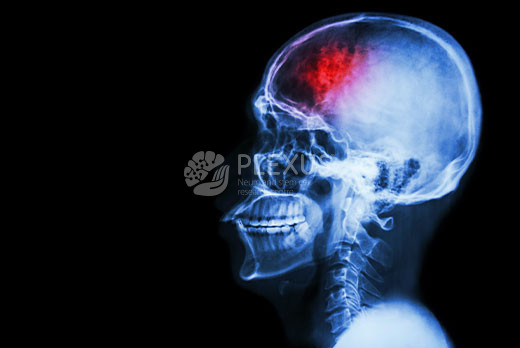
Decoding Stroke
According to the World Health Organization, 15 million people annually suffer a Stroke worldwide. And out of these, 5 million face death, and another 5 million are left permanently disabled.
Symptoms of Stroke
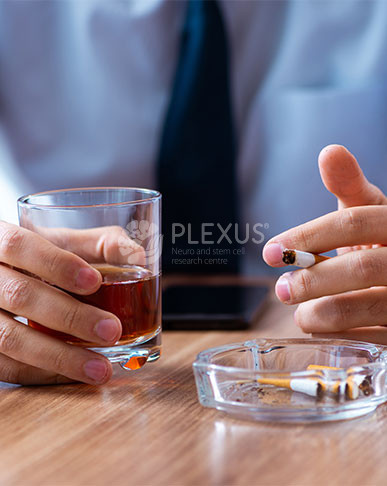
Causes of Stroke
- High blood pressure
- Heart disease
- Diabetes
- Smoking
- Birth control pills
- History of Transient Ischemic Attacks
- High red blood cell count
- High blood cholesterol and lipids
- Lack of exercise
- Obesity
- Excessive alcohol use
- Illegal drugs
- Abnormal heart rhythm
- Cardiac structural abnormalities
Treatments for Stroke
Exams and Tests
01 Exams and Tests
Get a CT/MRI scan done after a Stroke. It can help to show whether there is bleeding/clot in the brain.
Identifying and Treating Stroke
02 Identifying and Treating Stroke
When you display stroke-like symptoms, your doctor can confirm the symptoms and identify its type, location, and the extent of brain damage.
Use of Thrombolysis
03 Use of Thrombolysis
Consult your doctor for Thrombolysis or Thrombolytic Therapy that can help dissolve dangerous clots in blood vessels, improve blood flow, and prevent damage to tissues and organs.
Stroke Rehabilitation
04 Stroke Rehabilitation
An advanced Stroke Rehabilitation program can help you regain lost functions and improve your performance in daily tasks.
Our treatment program at Plexus
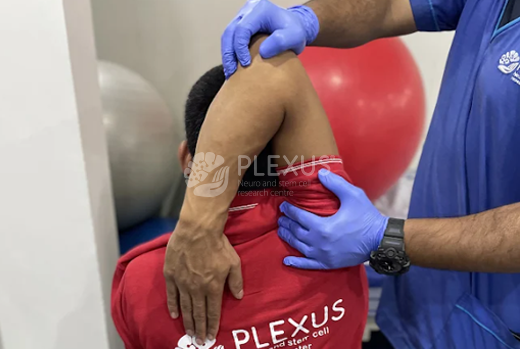
Physical Therapy
Occupational Therapy
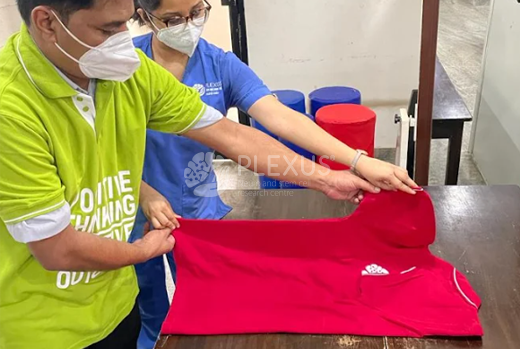
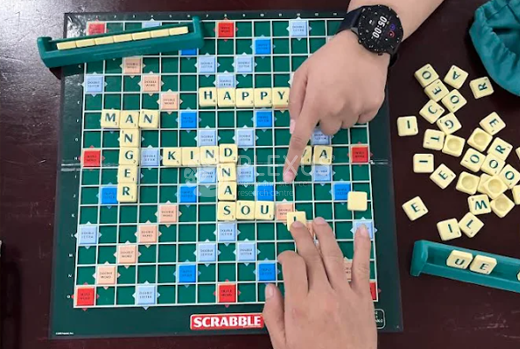
Cognitive Rehabilitation Therapy
Our highly trained neuropsychiatrists and occupational therapists work together to restore and enhance your cognitive functions after Stroke. We craft the best Cognitive Rehabilitation Therapy plan by conducting a detailed assessment of your current cognitive deficits and setting SMART goals (specific, measurable, attainable, time-bound, and relevant) accordingly.
Speech and Language Therapy
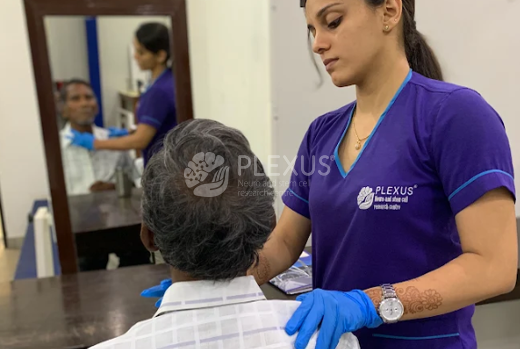
What our patients say

Shakuntala (name changed)
“My husband has been suffering from a stroke for some time now due to which his hand and leg on one side wasn't working properly. After getting a thorough consultation and regular treatment from Dr Na’eem Sadiq at Plexus, he is completely cured. I thank God and Dr Na’eem for this miracle.”
Amir Shaikh (name changed)
“Dr Naeem and his staff, especially the therapists at Plexus, very knowledgeable and experienced. They provided comprehensive treatment to my mother who was suffering from Stroke. Now she can walk again, all thanks to them."
FAQs answered
Although Stroke is a condition of the brain, it can affect the entire body. The most common disability that results from Stroke is paralysis on one side of the body, called hemiplegia. Problems with thinking, awareness, attention, learning, judgment, and memory are also seen after Stroke.
Stroke survivors often have problems understanding or producing speech. Additionally, Stroke can lead to emotional problems in which patients may have difficulty controlling their emotions and experience depression. With proper treatment, these problems can be controlled to a great extent.











